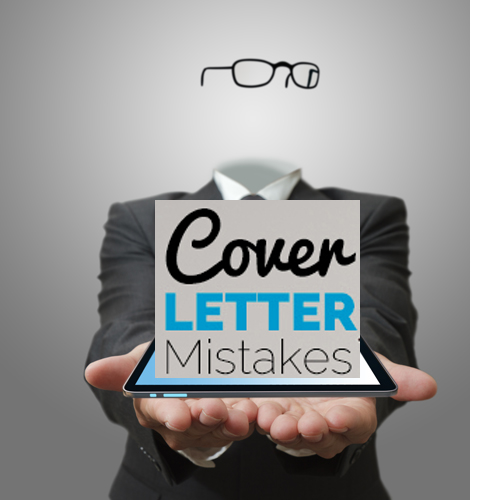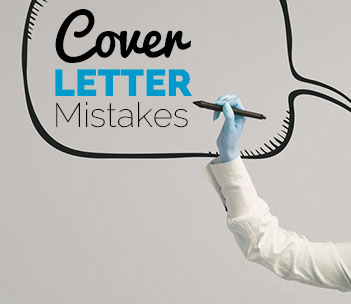Cover Letter Blunders You Must Avoid
 There are many job seekers who have that perfect CV that employers are always in search of. However when they think they have sent across perfect cover letter also and yet they do get rejected they are clueless what went wrong. It has been found in a survey that many job seekers who do not have a perfect cover letter are at a greater risk of getting eliminated. If the cover letters are half heartedly drafted or are replete with blunders, then it gets terrible.
There are many job seekers who have that perfect CV that employers are always in search of. However when they think they have sent across perfect cover letter also and yet they do get rejected they are clueless what went wrong. It has been found in a survey that many job seekers who do not have a perfect cover letter are at a greater risk of getting eliminated. If the cover letters are half heartedly drafted or are replete with blunders, then it gets terrible.
Given in this article are few tips that would be really helpful for the job aspirants to write a perfect cover letter to fetch their dream job. While drafting your cover letter try to avoid:
Irrelevant Cover Letter Format:
When you sit down to write a cover letter, make sure you have chosen the relevant format for it. Cover letters should not look mere cut-and-paste emails. They have to be a business letter meant for providing relevant information about you. Include recipient information like recipient name and address, return address if the cover letter is undelivered, and date. The letter should not be unprofessional. It has to be a written using a standard business-letter format.
Grammatical And Typo Errors
A thumb rule: never make grammatical, lexical and syntactical errors while writing your cover letter. Such errors send across the wrong message about you and your personality. It reflects that yours is a careless personality. You are not even efficient enough to draft a simple cover letter. So always proofread your cover letter, get it double checked by someone else. Take help of your family, friends, relatives or who so ever can assist you to proofread it for you.
Making It Too Personal
Though cover letters are more personal than your CVs yet you cannot go on and on writing everything about yourself. Ironically, the cover letter should be about as much about the employers also as it is about you. It doesnot mean that you neednot give your personal details and information but it means bear in mind the job requirements also while drafting cover letters. Write everything in sync and in context to job profile.
Making It Too Lengthy
Yes, cover letters are meant to be personal a bit but that doesnot imply that you will write an autobiography. Do not make your cover letter too lengthy as if you are writing a story or a novel. Rather a perfect cover letter should be sufficed in a page which means do not exceed the length to more than one page. Employers are already flooded with CVs and cover letters, and they have stipulated time to shortlist the candidates. So the cover letters should have maximum four concise and convincing paragraphs that are easy to read and understand.
Making Unsupported Claims
If the cover letters are irrelevant claims or false claims about you, then it is surely a blunder. Merely jotting down your achievements and strengths will not help unless supported with evidence. It sounds like self bragging if you simply write “achieved this and that” “has strong written and verbal communication skills." Always furnish few instances for each claim you make. Employers always want proof for everything you say and write.
Listing Irrelevant Skills and Qualifications
While writing a cover letter you must weigh every statement you mention in it. You can self analyze:
- If your sentences accentuate your candidature
- If your sentences relay your qualities and worth
If these two criterions are met then it is a perfect cover letter.
Make sure to mention only noteworthy skills and accomplishments that are relevant to your current position, or are in harmony with the target position. Being selective will always help and there will be no risk of making a negative impression on your employer.
A Generic Cover Letter
Cover letters should not be generic. Each time you apply for a job and send your CV along with cover letter write it with a fresh start. Remember that “one size fits all” never works. Customize the cover letter as per the companys requirements. It is time consuming yet worth it, if you tailor each cover letter for every organization and job. If an employer sees a generic cover letter he may feel you are not interested in the job and the company.
Avoiding Addressing the Recipient

If you fail to address the letter to the explicit name of the recipient it is surely a blunder. Avoid using:
- "Dear Personnel Director/HR Director,"
- "To Whom It May Concern,"
- "Dear Sir or Madam"
- "Dear Sirs"
- "Dear Hiring Manager for [name of position]
Such vague and impersonal addresses never make a positive impression on the hiring managers. They are considered as sluggish approaches that convey to the employers that you are interested enough to even find out the name of the hiring authority. Though it is not easy to find out the name of the hiring manger, but try to do so to show your concern for the particular job and organization. Generally you can make a call to the company and ask the people, who receive your phone, to tell you the name of the hiring manager. You can look up the internet and other resources like phone book, library also to know the name of the manager. If nothing works and you are unable to find the name you may then begin with "Dear Hiring Manager for [name of position].
Expectations of Receiving Rather Than Offering
This kind of blunder is commonly done by the fresher and young college graduates. Their lack of experience is common a reason for it. Most of the times, they are more interested in knowing what the employers can do for them, what they have to offer. They do not tell the employers what they can do for the company or how they can be resourceful and contribute to the companys growth.
If the cover letters are not well drafted and full of such blunders, they are at a risk of being getting rejected. So avoid doing such mistakes and get your dream jobs easily.









